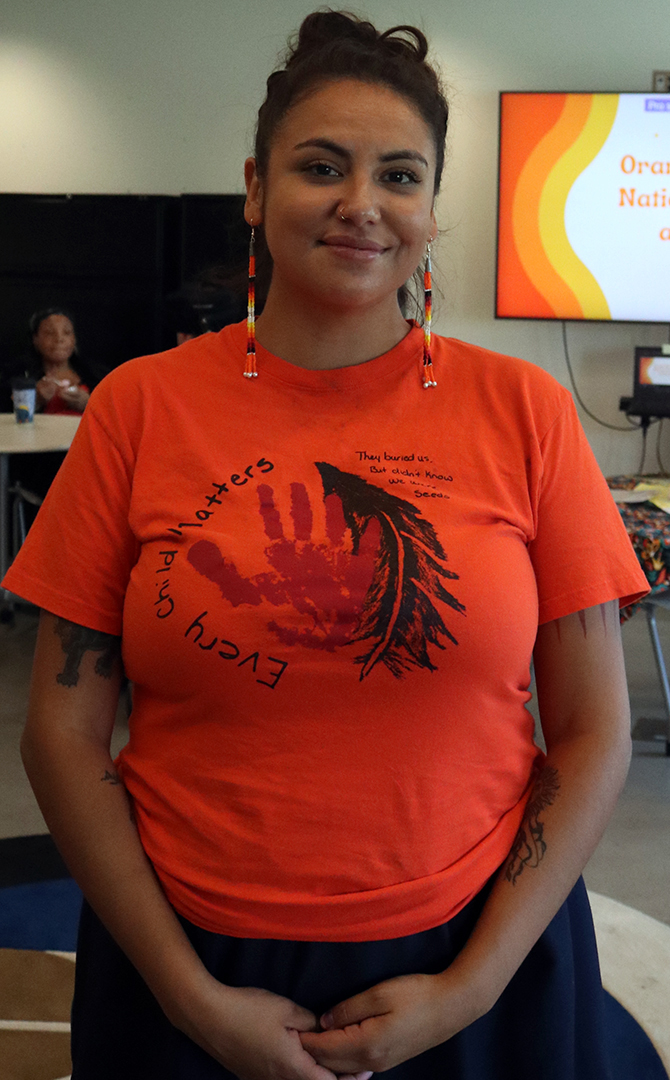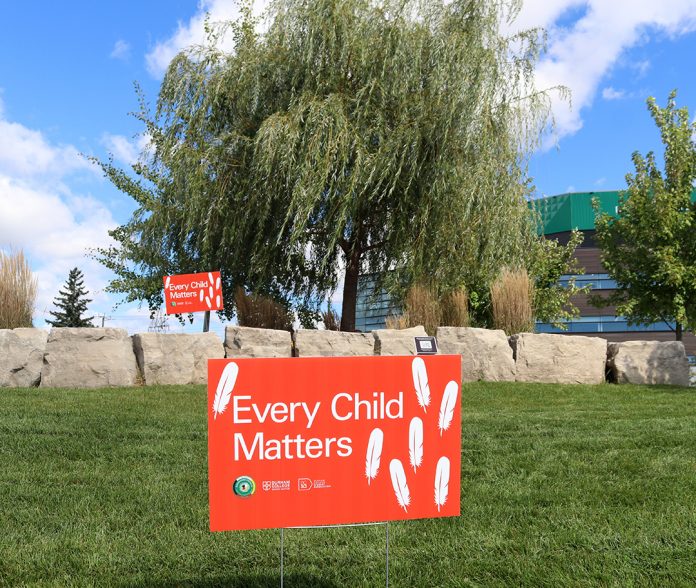On Sept. 30, the National Day for Truth and Reconciliation was recognized on the Durham College Oshawa campus. The event, hosted by the First Peoples Indigenous Centre, included performances and reflections to honour Orange Shirt Day, which commemorates the impact of the residential school system on Indigenous communities.
Dr. Kayla Murphy, director of Indigenous initiatives at the on-campus centre, says that meaningful engagement with Indigenous topics is motivated by local events like this one.
“These events provide a platform for sharing Indigenous histories, lived experiences and the ongoing impacts of colonization,” she said.
She also noted that these types of events allow non-Indigenous people the opportunity to reflect and become informed allies when Indigenous issues like systemic inequities, intergenerational trauma and the legacy of residential schools are brought to the forefront of these spaces.
Dr. Murphy said that when these events take place on campus, Indigenous students and staff are given spaces to honour their communities and cultures, promoting healing and creating opportunities for meaningful conversations within society.

At the event, attendees were encouraged to reflect on the effects of the residential school system. Spoken word poet Sarah Lewis performed pieces that described the struggles of survivors.
According to Dr. Murphy, artists like Lewis create spaces for Indigenous voices to be heard and represented.
“Sarah’s work resonates deeply within Indigenous communities by speaking to shared experiences of trauma, resilience and identity,” she said.
Dr. Murphy noted that supporting Indigenous initiatives, spaces and art are ways non-Indigenous people can help combat Indigenous issues such as the preservation of languages and traditions.
She explained the importance of non-Indigenous people educating themselves and supporting Indigenous communities by learning about their history and traditional knowledge systems, especially those tied to the lands they inhabit.
Being educated on these aspects of Indigenous culture can allow allies to amplify Indigenous voices when it comes to broader conversations of these struggles.
Dr. Murphy also emphasized that while informed allies can offer valuable support through resources, time and advocacy, it is essential for Indigenous people to lead these efforts, advancing Indigenous self-determination.
By bringing events like these to local communities, she added, “we create more visibility, promoting the voices of those who are under-represented.”
“The local context of these events helps the broader community understand that these issues are not distant or historical – they are deeply interwoven with our shared present.”




